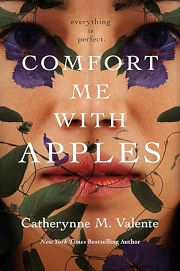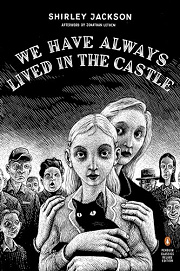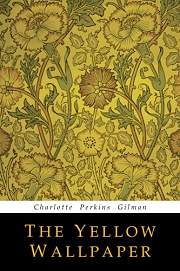Share your thoughts in a quick Shelf Talk!
Comfort Me With Apples by Catherynne M. Valente
In a perfectly manicured neighborhood where every rule is lovingly enforced and every smile is just a little too bright, a devoted wife begins to notice hairline cracks in her beautiful life—and in herself. Secrets whisper beneath the white picket fences, fairy-tale echoes creep through the wallpaper, and the truth waits with a grin you can’t quite see. Lushly written and wickedly unsettling, Comfort Me With Apples invites you to open the door you’ve been told to keep shut.
Have you read this book? Share what you liked (or didn’t), and we’ll use your answers to recommend your next favorite read!
Love Comfort Me With Apples but not sure what to read next?
These picks are popular with readers who enjoyed this book. Complete a quick Shelf Talk to get recommendations made just for you! Warning: possible spoilers for Comfort Me With Apples below.
In Comfort Me With Apples, did you enjoy ...
... a Bluebeard-style fairy-tale allegory reframed as domestic dread and feminist subversion?
The Bloody Chamber by Angela Carter
If the way Sophia’s “perfect” home and its HOA commandments masked a fable about marriage, obedience, and forbidden knowledge hooked you, you’ll love how The Bloody Chamber reimagines Bluebeard. Carter’s heroine is handed keys she must not use, then discovers the truth inside a locked room—much like Sophia’s creeping suspicion as she prowls her not-to-be-entered spaces with that smiley rulebook in hand. It’s lush, knife-sharp, and turns the fairy tale of the good wife on its head—just as the apple does in Sophia’s immaculate kitchen.
... a god-haunted household ruled by inscrutable laws and a patriarch with terrifying power?
The Library at Mount Char by Scott Hawkins
Sophia’s world is governed by a husband and a manual—an Edenic suburb whose rules are as sacred as they are sinister. In The Library at Mount Char, Carolyn and her siblings live under “Father,” a godlike figure whose catalogues confer impossible powers and whose rules are absolute. As Sophia pieces together what’s hidden behind the locked door, Carolyn and company navigate taboo knowledge, punishments, and a cosmology where breaking a rule can unmake a life. If the biblical undertow and the tyrannical domestic order in Sophia’s house thrilled you, this book doubles down on that divine dread.
... an intimate, first-person voice that slowly exposes the rot beneath a carefully kept home?
We Have Always Lived in the Castle by Shirley Jackson
If you were drawn to Sophia’s polished narration as she reassures herself that everything—and her husband—is perfect, Jackson’s Merricat will pull you in the same way. Told in a claustrophobic first person, We Have Always Lived in the Castle unfolds inside a house full of rituals, secrets, and a community that watches from the hedges. As Sophia tiptoes toward the forbidden room and what it says about her marriage, Merricat circles her family’s locked histories until the truth finally surfaces. It’s that same unsettling intimacy where the narrator’s certainty becomes the biggest question.
... disorienting, dream-logic exploration where a place’s rules rewrite identity?
Annihilation by Jeff VanderMeer
Sophia’s gated paradise feels off: the cheery bylaws, the too-perfect neighbors, the room you mustn’t open. Annihilation channels that uncanny hum as the Biologist enters Area X with a set of protocols that don’t quite govern reality, discovers impossible structures like the “tower/tunnel,” and keeps a journal that reframes who she is. If you loved how the house in Comfort Me With Apples seemed to breathe its own scripture—rewriting Sophia’s sense of self—Area X’s strange ecology and the lighthouse’s secrets will scratch that same surreal itch.
... a woman’s interior unraveling under domestic confinement and a husband’s smothering control?
The Yellow Wallpaper by Charlotte Perkins Gilman
Sophia keeps telling herself she’s happy—cooking, waiting, obeying the rules—until the locked spaces and little artifacts of other women crack that story. In The Yellow Wallpaper, an unnamed wife is confined to a room by her physician husband; her fixation on the wallpaper’s patterns becomes a record of eroding selfhood. If the slow, intimate shift from “I’m fine” to “something is terribly wrong” in Sophia’s voice gripped you—the manual’s cheerful passages, the forbidden basement—this classic delivers that same psychological descent with devastating clarity.
Unlock your personalized book recommendations! Just take a quick Shelf Talk for Comfort Me With Apples by Catherynne M. Valente. It’s only a few questions and takes less than a minute.





